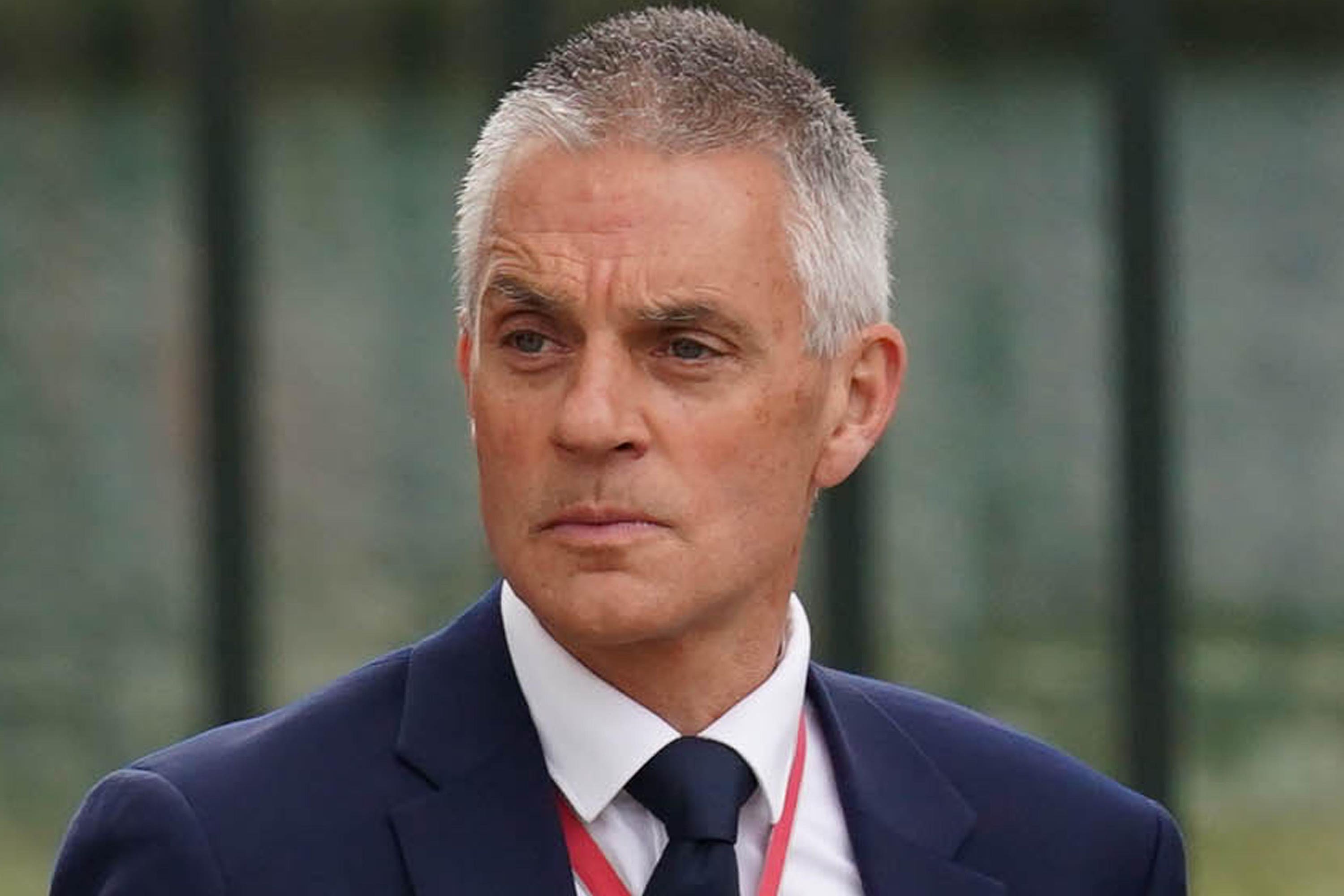Peers to grill BBC bosses about governance following Huw Edwards furore
Director-general Tim Davie and acting chairwoman Dame Elan Closs Stephens will be among those quizzed by a House of Lords committee.

Your support helps us to tell the story
From reproductive rights to climate change to Big Tech, The Independent is on the ground when the story is developing. Whether it's investigating the financials of Elon Musk's pro-Trump PAC or producing our latest documentary, 'The A Word', which shines a light on the American women fighting for reproductive rights, we know how important it is to parse out the facts from the messaging.
At such a critical moment in US history, we need reporters on the ground. Your donation allows us to keep sending journalists to speak to both sides of the story.
The Independent is trusted by Americans across the entire political spectrum. And unlike many other quality news outlets, we choose not to lock Americans out of our reporting and analysis with paywalls. We believe quality journalism should be available to everyone, paid for by those who can afford it.
Your support makes all the difference.BBC leaders are to be grilled in Parliament about the “adequacy” of the corporation’s governance arrangements following the Huw Edwards furore.
Director-general Tim Davie, acting chairwoman Dame Elan Closs Stephens and policy director Clare Sumner will face a pre-arranged meeting of the House of Lords’ Communications and Digital Committee on Tuesday.
The committee said it would raise issues including “in light of recent events, what concerns have been raised about the adequacy of the BBC’s governance arrangements and how it is addressing these”.
Corporation bosses will be questioned after Sir Tony Blair told Sky’s Sophy Ridge on Sunday programme at the weekend that the BBC should “stand up for itself more” when asked about its response to the situation.
Following allegations by the Sun newspaper that a high-profile presenter, now named as Edwards, paid a young person for explicit images, Mr Davie ordered a review to “assess how some complaints are red flagged up the organisation”.
The family of the young person had originally complained to the BBC in May and the corporation said it tried to contact them twice.
The young person at the centre of the controversy later said via lawyers, in a letter to BBC News, that nothing inappropriate or unlawful happened with the unnamed presenter.
On Wednesday, the Metropolitan Police said no criminal offence has been committed by Edwards and the corporation restarted its “fact-finding investigations” into claims about the newsreader.
Edwards was named by his wife, Vicky Flind, who said in a statement that he is receiving in-patient hospital care and is suffering “serious mental health issues”.
The coverage of the story by the media has been criticised by prominent figures including former Downing Street press secretary Alastair Campbell, the BBC’s world affairs editor John Simpson and former BBC journalist Jon Sopel.
Simpson wrote on Twitter: “No criminal offences were committed, so it’s a purely personal tragedy for everyone involved. Let’s hope the press leave them all alone now.”
Sopel, who said he talked to Edwards following the allegations, told Good Morning Britain: “We’ve had contact, obviously not since he’s been hospitalised.
“He was very angry, I think felt very let down by what happened in the Sun, furious with their coverage, not overly impressed with the BBC’s coverage either.”
The Sun said it has no plans to publish further allegations and will co-operate with the BBC’s internal investigation process.
BBC News had reported a second person claiming they felt threatened by messages they received from Edwards.
BBC Newsnight has also reported claims that one former and two current employees at the corporation claim they had received messages from the veteran broadcaster that made them feel uncomfortable.
The corporation will also face questions about how the broadcaster’s commitment to impartiality “needs to keep pace with changing societal expectations”.
In March, Gary Lineker was taken off air by the BBC after posting a tweet in which he said the language used by the Government to promote its asylum plans was not dissimilar to 1930s Germany.
The BBC later announced a review into its social media guidelines as the corporation said that the former footballer, 62, would return to Match Of The Day following a boycott by top on-air talent.
The committee will also ask the BBC about how the chair and the board ensure the corporation stays independent from Government.
In April, Richard Sharp resigned as BBC chairman after a report found he breached the rules around public appointments following an introduction which led to then-prime minister Boris Johnson getting an £800,000 loan guarantee.
The former Goldman Sachs banker, who was appointed in early 2021, said at the time he had acted in “good faith” and had the “best of intentions” after an inquiry by barrister Adam Heppinstall KC.
The meeting will also look at proposals for an alternative funding model and the BBC’s long-term strategy and how the corporation is serving all of society including low-income households.